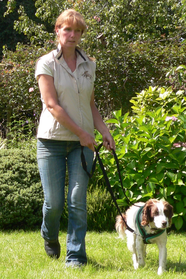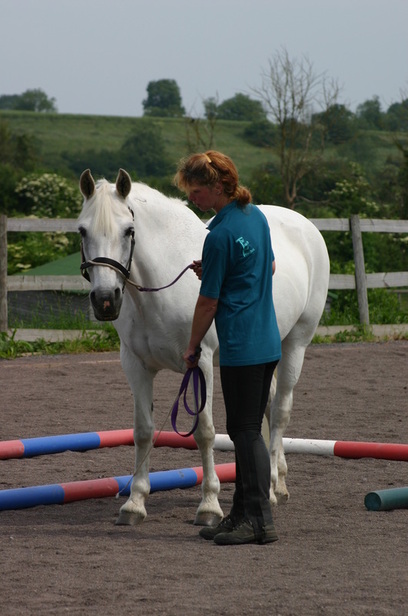What is TTouch?

TTouch is a positive approach to training, behaviour and rehabilitation. Developed over thirty years ago by internationally recognized animal expert Linda Tellington Jones, TTouch recognizes the link between physical, emotional and mental balance and that therefore it is possible to influence emotional responses and behaviour by relieving tension in the body.
TTouch uses body work, ground work/ movement exercises (where appropriate) and specific equipment to release tension and to promote a feeling of calm and well being. This in turn helps animals develop self confidence and self control and enables them to move beyond their instinctive and, often fearful, responses.
An animal that has tension in the body will respond to the effects that this tension has on the nervous system and this will influence how the animal is able to process information and to learn. Tension triggers more instinctive stress responses such as resource guarding, suspicion, reactive behaviours, nervousness, over excitability, mouthing and biting, sensitivity to contact, fear, increased vocalisation, timidity, reluctance to socialise and so on. This tension will also have a direct effect on performance and many riders and dog handlers/trainers note that the animal becomes happier, more willing, more co-operative and more consistent in his work when TTouch techniques are introduced into the day to day handling, training and care of that animal.
TTouch uses body work, ground work/ movement exercises (where appropriate) and specific equipment to release tension and to promote a feeling of calm and well being. This in turn helps animals develop self confidence and self control and enables them to move beyond their instinctive and, often fearful, responses.
An animal that has tension in the body will respond to the effects that this tension has on the nervous system and this will influence how the animal is able to process information and to learn. Tension triggers more instinctive stress responses such as resource guarding, suspicion, reactive behaviours, nervousness, over excitability, mouthing and biting, sensitivity to contact, fear, increased vocalisation, timidity, reluctance to socialise and so on. This tension will also have a direct effect on performance and many riders and dog handlers/trainers note that the animal becomes happier, more willing, more co-operative and more consistent in his work when TTouch techniques are introduced into the day to day handling, training and care of that animal.

